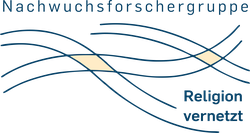Profile
Within the CERES the junior researchers' group connects explored physically transmitted needs and investigated how religious migrant communities convert and address these needs. For this a network analytical access was chosen and put to the test, whether it is possible to analyse religion and religious figuration empirically from a relational perspective, or not. Within the Center for Religious Studies (CERES) the young researchers' group had several interfaces to the project Transformation of Religion in the Modern Age, which investigated migrant communities by an historical and comparative approach. Furthermore, the research was closely connected to questions raised by the Käte Hamburger Kolleg Dynamics in the History of Religions between Asia and Europe, that focuses religious contacts in the globalization era.
Researching Religion & Migration on a Meso Level
While classical studies deal with religion in regard to migration especially as a ressource for idenitiy (micro level) or determinant for integration, the focus of the young researchers' group was rather directed on religious communities of migrant (meso level). Thus, these communities were not understand as 'ethnical colonies' but as contact zones in which religious ethics and confidence are translated into support and opportunities for realising projects.
Network Analysis
Conceptually and methodologically, the research was based on a network research approach. Religious communities of migrants were not taken for strictly ininsulated entities or collective actors, but as social spaced, which embed their members and are themselves embedded in a social framework. Therefore, on the empirical side the researchers turned their focus on all relationsships within the community between members (e.g. for supporting each other) and on those relation which the community has to other social institutions.
Case Studies compare Religions
The value of the design of the young researchers' group was that each reseacher could compare his/her own study with those of fellow researchers. All PhD projects were dedicated to different religious traditions (Sunni and Shia Islam, Evangelical and Pentecostal Christians, Hindu traditions), which derived from diverse regions auch as Turkey/Middle East, Northern Africa, Sri Lanka, Korea, South America. Given this, the group's researcher were able to swap ideas and compare their own findings with each other works in regard to how religious migrant communities determinante the process of integration.

